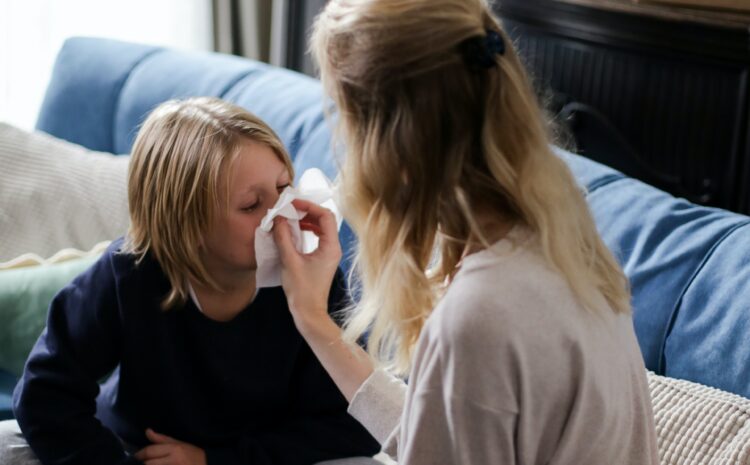
Allergies are a common condition that affects millions of people worldwide, and children are no exception. Allergic reactions can range from mild to severe and can occur from various triggers, such as foods, pollen, insect bites and more. As a parent, it’s essential to be aware of the signs and symptoms of allergies, as well as how to prevent and manage them. In this blog post, Dr. Tyler Basen will discuss all the crucial information parents need to know about allergies in children.
Understanding Children Allergies
Allergies occur when the immune system overreacts to a particular substance, known as an allergen. The immune system produces antibodies that cause the release of histamine and other chemicals in the body, leading to various symptoms. Common allergens in children include:
- Food – peanuts, tree nuts, milk, eggs, soy, wheat, fish and shellfish
- Insect bites or stings – bee, wasp and ant bites
- Medications – antibiotics, aspirin and ibuprofen
- Environmental allergens – pollen, dust mites, mold and animal dander
Signs and Symptoms of Allergies in Children
The signs and symptoms of allergies can vary depending on the severity of the reaction and the allergen. Mild allergic reactions can cause symptoms such as:
- Itchy or watery eyes
- Runny or stuffy nose
- Sneezing
- Mild rash or hives
- Mild itching or swelling
Severe allergic reactions can cause a life-threatening condition called anaphylaxis, which can lead to difficulty breathing, swelling of the face and throat, rapid heartbeat, and shock. If your child experiences severe symptoms, seek emergency medical attention immediately.
Preventing and Managing Pediatric Allergies
Preventing allergic reactions in children involves identifying and avoiding the allergen. Here are some tips for parents to help prevent and manage allergies in their children:
- Identify the allergen – If you suspect that your child has an allergy, talk to their pediatrician or allergist to identify the allergen.
- Avoid the allergen – Once you know the allergen, help your child avoid exposure to it as much as possible. This may involve avoiding certain foods, keeping your home free of allergens and using air purifiers.
- Carry emergency medication – For children with severe allergies, it’s essential to carry emergency medication, such as epinephrine auto-injectors, most commonly known as Epi Pen, at all times.
- Teach your child about their allergy – As your child gets older, teach them about their allergy and how to manage it. This includes teaching them how to recognize and avoid their allergen, how to use emergency medication and how to seek help if necessary.
Conclusion
Allergies in children can be a serious condition, but with proper prevention and management, it’s possible to keep your child safe and healthy. As a parent, it’s essential to be aware of the signs and symptoms of allergies, identify and avoid the allergen, and carry emergency medication for severe reactions. By working with your child’s pediatrician and allergist, and teaching your child about their allergy, you can help them manage their condition and live a full, healthy life.
If you have more questions regarding pediatric allergies, please do not hesitate to contact us. Pacific Allergy & Asthma would be more than happy to assist and answer any questions.




